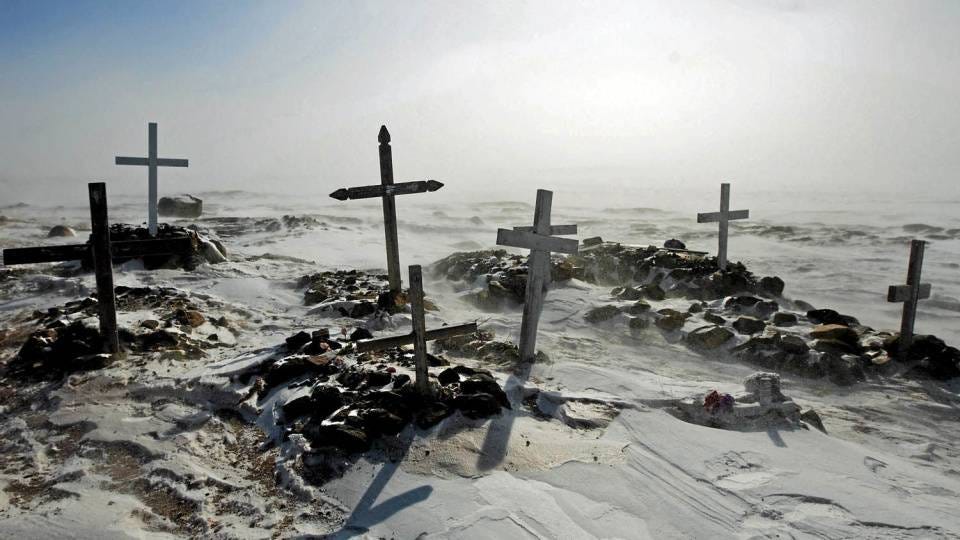On Death
Getting Un-Made
“It’s not my time.” That was the phrase that had ensured the workshop leader packed her gatherings from one side of the globe to the other. She’d come back from a near death experience and a sudden cease-and-desist on what had seemed till that moment to be a terminal illness. But no. The woman had––doctors attested––made a complete recovery after her experience. She now had all sorts of heavenly tips for those in similar predicaments. Understandably, the room was filled with desperate people, hoping that by proximity to her some of that back-from-the-brink medicine would rub off on them.
The problem was the woman was nowhere to be seen.
Two days in, she’d taken the afternoon off and was having a spa somewhere nearby with her husband. I received a rattled call by the supervisors and reluctantly accepted the request to hold the ailing fort till she deigned to return. I gingerly picked my way through the oxygen machines and wheelchairs and had a good look at the people. They’d had forty-eight hours now of miracle-speak, and they didn’t seem to be exactly buoyant. I asked for a few windows to be opened then said the first thing that came into my head.
“Ok. The title of this afternoon’s little adventure is this: maybe it is my time.”
They didn’t recoil––at least visibly––and so I began to tell them a fairy tale. It was one from the dark end of the street, with ten different types of depth to it. I remember they valiantly stayed with it, even seem relieved that through the wider lens of a story they could be held in the forest of the condition that they were actually in. That they could talk about what often seems a great Western heresy, that things end. That our lives, in the shape we know about, will finish.
After the workshop I drove back to Charlotte’s bedside. Charlotte was at the end of her life, a young woman riven horribly hard by breast cancer, with kids and a husband. I wended my way through the oddly quiet house, with its curtains drawn and toys everywhere. I went up the stairs to the small room she was in. I’d visited her several times, times when we could still just about chat, but that was past now.
She was skeletal, and her once lustrous hair was a delicate little fuzz over her pale scalp. Her family had thought to move her to the workshop, to be one of the assembled hopers, but mercifully saw that moment had passed. So now she was nested in and fixing to die.
To get here, to this moment, had taken a couple of years, so there was a kind of rag-worn acceptance about it. The room cleared out for a bit and I sang quietly to her, songs that may get sung when you are acknowledging a settling peace and that it’s quite ok to move from one good place to another good place. Charlotte’s kids were at school, and it seemed as if she wouldn’t go till they got home. Sure enough they returned, and sure enough, soon she died.
Her body remained in wake for several days downstairs. It was visited every day by her children, Charlotte having been carried down from her room by her husband, father, brother and myself. Musicians played, poems got read, and there was a revolving door of visitors from all over Europe. People sometimes fell asleep where they sat, under coats. The mood of the home was extraordinary––thin would be the word––and the day came when we sealed the handmade coffin with heated beeswax and the family singing the words, Good where I’ve been, good where I’m going to, over and over.
Charlotte’s mother-in-law was a priest and led the funeral. I had a fire lit and told a few stories, I remember men losing their stirrups carrying armfuls of flowers, women holding each other and staring into a hole cut into the side of a Devon hill on a freezing spring day. I can tell you that Charlotte’s death caused such an appropriate tear in our little community it felt like we all scattered for a few years.
I salute the workshop leader and her recovery, but I loathe the addictive pungency of what such stories can do to us. Walking backwards into our own graves, so filled with denial because we lived not really once thinking that such a thing could one day happen to us. We miss the needed consciousness that sitting with a dead body will sober and sanctify us into. We haven’t been done a favour by having the end of life ushered out of sight.
Part of getting made into a human is the final part. Getting un-made. That preparing for death is not the same as what was before it. Denial is not just a river in Egypt. It’s not my time is not the appropriate mantra of a grown up. One day, any day, it will be my time, is better.
Years later I would be back on that hill, for another funeral, but we have not come to that story yet.


